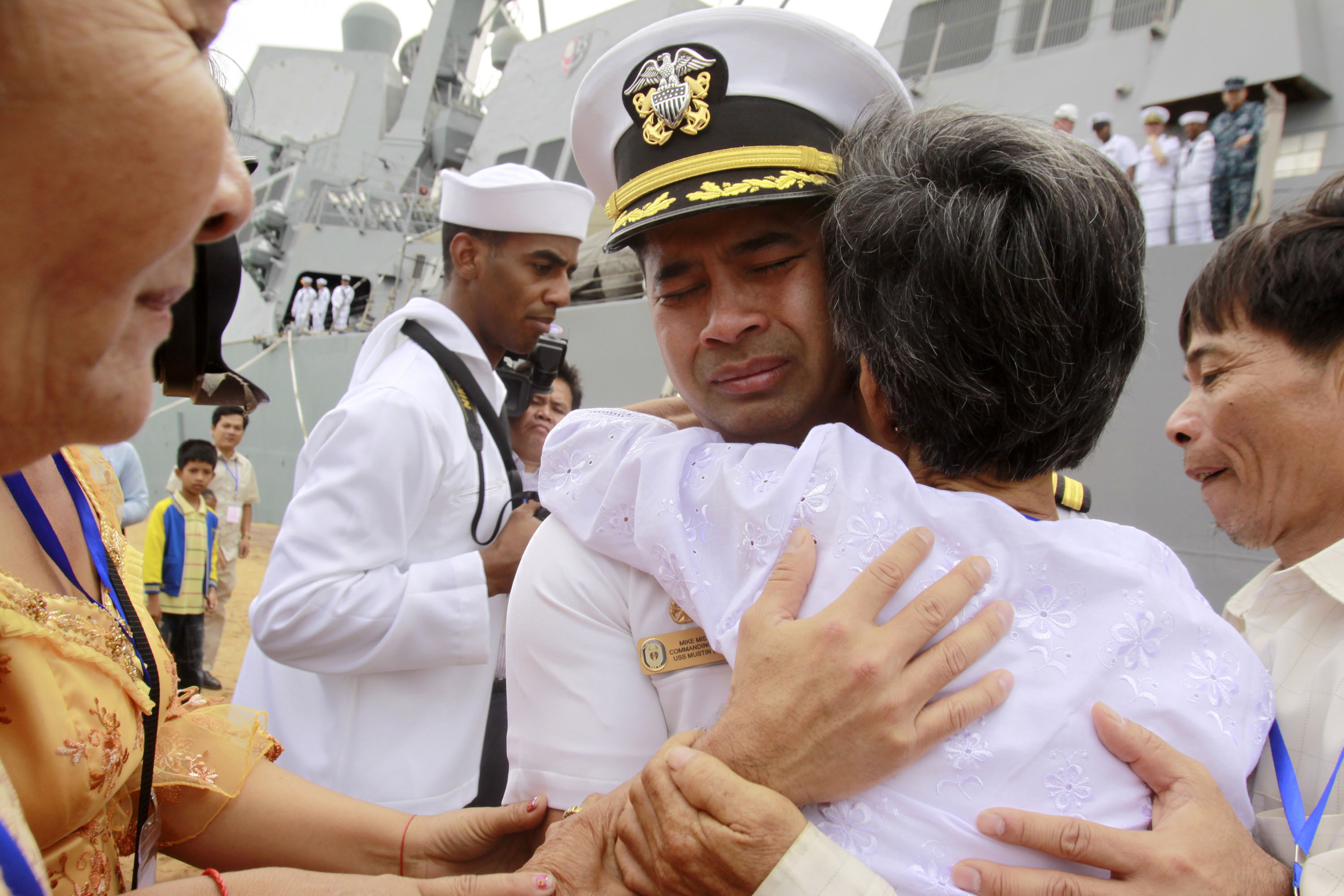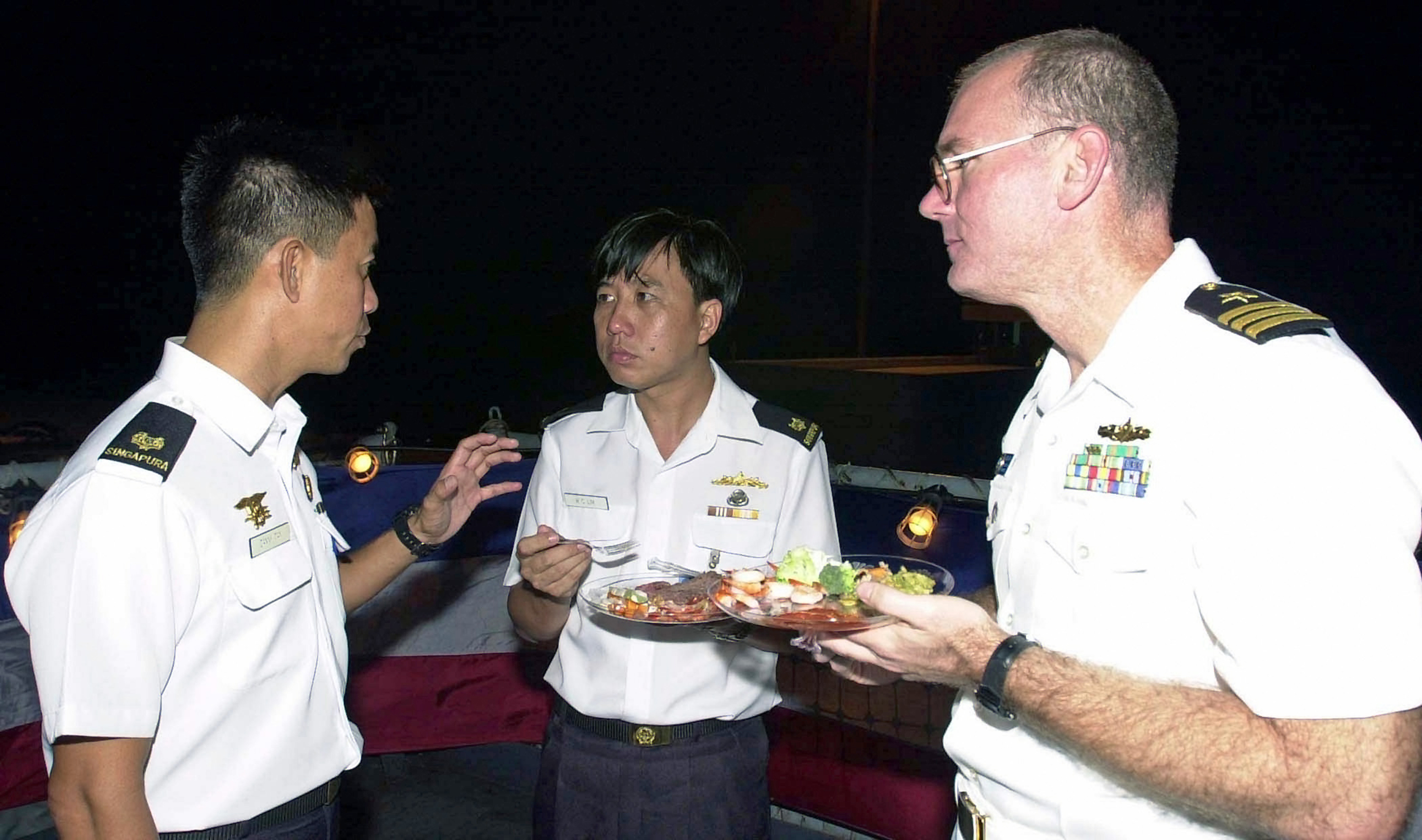When then-Special Assistant to the Chief of Naval Operations Bryan Clark saw the news about a couple of Navy officials caught up in a salacious bribery case with Leonard Glenn Francis, a Malaysian maritime tycoon nicknamed “Fat Leonard,” he knew it was the beginning of something far more serious than the colorful curiosity it appeared.
“(Leonard Francis) was a well-known character in Western Pacific fleet operations… and the fact that he was kind of sketchy was also well known,” Clark told RealClearLife.
If Fat Leonard was really crooked and if he had managed to lure a few Navy officers into betraying their country for hookers and other exotic perks as alleged in court documents, Clark suspected at least some of the countless other Navy officials who had dealt with the contractor over the years had also fallen into his web as well. The bad news for the Navy was just beginning, in other words.
That was in the fall of 2013. Four and a half years later, the never-ending Fat Leonard affair has led to the conviction of more than a dozen Navy officials, including the first active-duty admiral convicted of a federal crime. Hundreds of others, including as many as 60 admirals, are reportedly under investigation for their dealings with the rotund contractor.
Though Clark maintained the bad apples were a tiny subset of the 50,000-plus officers in the Navy, the Department of Justice (DOJ) appears to have struggled to find sufficient adjectives to describe the scope of the scandal, trying out “wide-ranging,” “staggering,” “massive” and “astounding.”
Next week will see the resumption of hearings in one of most striking cases to come out of the affair. In it, a retired admiral and eight other high-ranking Navy officers stand accused of “acting as a team of moles” for Fat Leonard, “trading military secrets and substantial influence for sex parties with prostitutes, extravagant dinners and luxury travel.”
“This is a fleecing and betrayal of the United States Navy in epic proportions, and it was allegedly carried out by the Navy’s highest-ranking officers,” Acting U.S. Attorney Alana W. Robinson said in announcing the indictment against the group in March 2017: “The alleged conduct amounts to a staggering degree of corruption by the most prominent leaders of the Seventh Fleet—the largest fleet in the U.S. Navy.” The DOJ alleges the group “actively worked together as a team to trade secrets for sex, serving the interests of a greedy foreign defense contractor, and not those of their own country.” All the accused have pleaded not guilty.
Clark, who led organizational assessments for the Navy as part of his 30-plus-year career as a sailor and civilian before leaving the service at the end of 2013, said that the steady drumbeat of arrests and guilty pleas over the years hasn’t particularly shocked him.
“It wasn’t surprising that that happened [and] it wasn’t surprising the scope that it eventually reached,” he said. “He [Fat Leonard] had been doing this for a long time. …When one or two people start accepting bribes or favors, it just becomes a way of doing business.”
And if Fat Leonard is to be believed, the arrests won’t end anytime soon.
Looking back, it all started with Lady Gaga.
The Rising Star and the NCIS Mole
The first time the name Fat Leonard became widely known outside of Navy circles was in September 2013 when the DOJ announced his arrest along with a Navy commander and a NCIS special agent.

The scheme, spelled out in court papers, went like this: Fat Leonard ran a company that did husbandry services—like providing fuel and waste removal services—for U.S. Navy ships when they visited one of the many ports in Southeast Asia his company services. In order to get a leg up on the competition, Fat Leonard bribed the Navy officer, Commander Michael Misiewicz, with prostitutes, luxury travel and, in one case, tickets to Lady Gaga in order to get his hands on classified ship movements. Misiewicz, prior to his arrest, had been something of a rising star in the Navy and the subject of a Navy profile highlighting his Cambodian heritage.
The NCIS agent, John Beliveau, came into play as Fat Leonard’s man on the inside after the NCIS began investigating Fat Leonard’s company. Beliveau provided Fat Leonard internal NCIS reports and coached him on how to answer investigators’ questions, prosecutors said. In exchange, Beliveau got the same kind of perks as Misiewicz.
But Fat Leonard, Misiewicz and Beliveau weren’t careful in their communications, and a highly entertaining but very damning email trail eventually doomed the trio. In one email, Beliveau allegedly wrote to Fat Leonard, “…I will always be your friend, but you will get nothing else… until I get what you promise… You give your whores more money than me ;)” All three eventually pleaded guilty.
It was a wild story to be sure, but at the time the Justice Department’s announcement did little to indicate it was more than that, except to note that the investigation was ongoing.
Then, a month after the first arrests, another Navy officer was charged, and a DOJ official revealed that a serious storm was coming for the Navy.
“Day by day, this massive Navy fraud and bribery investigation continues to widen, and as the charges announced today show, we will follow the evidence wherever it takes us,” Acting Assistant Attorney General Mythili Raman said then. U.S. Attorney Laura Duffy added that “a number of officials were willing to sacrifice their integrity and millions of taxpayer dollars for personal gratification.”
Scandal By the ‘Scores’?
The investigation continued and other alleged co-conspirators were added to the court’s docket, but it wasn’t until January 2015 that the bottom fell out. That’s when Fat Leonard pleaded guilty to corruption-related charges and, in doing so, claimed that “scores” of Navy officials were involved in his scheme.
While not yet approaching the numbers Fat Leonard suggested, so far 15 current or former Navy officials linked to the scandal have pleaded guilty, five sailors have been charged in military court and nine others await trial in federal court, according to a count by the Washington Post. And six admirals have been disciplined or admonished by the Navy, so far.
The bribes Fat Leonard used over the years include cash, electronics, tickets to The Lion King, kobe beef, a designer handbag and, on several occasions, nights in fancy hotels with high-class prostitutes from Thailand to Mongolia. In return, prosecutors said some Navy officials provided Fat Leonard with classified information, others in more powerful positions attempted to actually direct ships to his ports and some just looked the other way when Fat Leonard overcharged the U.S. taxpayers by millions of dollars for his otherwise legitimate services.
In January, the DOJ made its most recent Fat Leonard-related announcement, about ex-Navy Commander Troy Amundson pleading guilty to a count of conspiracy to commit bribery. (Amundson, according to prosecutors, fancied Mongolian prostitutes.)
Then the DOJ indicated the investigation has not abated in the nearly five years since the first arrests. “We are pressing forward in this investigation until we are certain that all involved have been held accountable,” U.S. Attorney Adam Braverman said.
Lessons for the Navy and for Counter-Spies
In an essay for the U.S. Naval Institute, Capt. John Cordle (Ret.) argued that the investigation, while clearly warranted, was also ensnaring innocent senior officers by association and sometimes permanently derailing promising careers. (The Washington Post reported this week that an admiral on track to potentially lead the Joint Chiefs of Staff was sidelined after Fat Leonard accused him of accepting the services of a Chinese prostitute in 2003. The admiral has denied the allegation.)
Those unlucky officers, combined with the increasing number of officers that allegedly betrayed their country on purpose, could add up to what Cordle called a “lost generation” for the Navy.
Clark, currently a senior fellow at the Center for Strategic and Budgetary Assessments, said he doesn’t think it’s quite that bad. The corrupted officers, he said, came from a relatively narrow part of the Navy’s Seventh Fleet contract officials and commanders—the ones from whom Francis could profit most directly. Hundreds of sailors may be subject to scrutiny for their time in Fat Leonard’s ports, but he said the innocent can be cleared quite easily.
Clark said that while the Navy appears to be learning its lesson the hard way about improving contract oversight and officer conduct, it should also consider the effect of the relatively low turnover in assignments to the Pacific. It’s a region where some officers prefer to spend their tours and their time off, sometimes “homesteading” by building a life in Southeast Asia. That, he said, can lead to the evolution of “insular communities” and a potentially corruptible mini-culture.
“One downside of the military is people turn over every few years, so you’re having to train a new cohort of people and you lose experience when they leave, but one benefit of that is you get this constant refreshing of the community and the standards,” Clark said. “So if you’ve got an organization that has let its standards slip a little bit, when new people come in, they come in and ask questions and they may bring the standards up because they come from a place where the standards were maintained. Turnover is an important tool to help ensure that you’re not falling prey to the gradual erosion of standards.”
The other lesson, Clark said, was for America’s counterintelligence operations. If Fat Leonard, who was only after some extra profit from port visits, could corrupt more than a dozen Navy officers and obtain classified information from them, what could a determined spy service with far greater resources pull off?
“I think it’s a wake-up call for the intelligence community to say, ‘OK, well, these guys are this easy to turn, how about guys who really know stuff the Chinese might be interested in?’ How hard could they be to turn?” he said.

This article appeared in an InsideHook newsletter. Sign up for free to get more on travel, wellness, style, drinking, and culture.

























